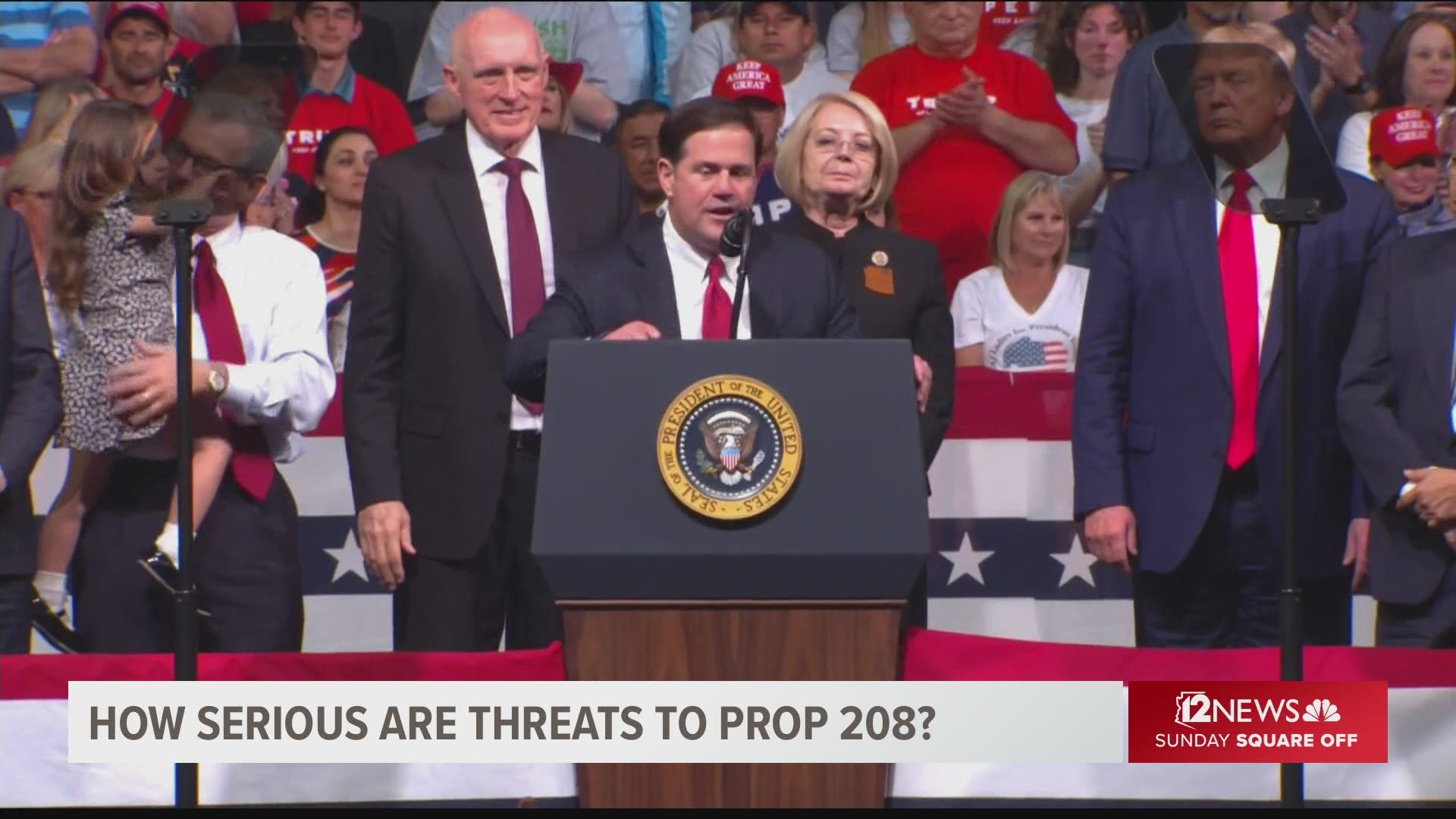PHOENIX — Editor's note: The above video aired during a previous broadcast.
An effort to block Arizona's new voter-approved tax for education funding remains in limbo after the state's highest court declined to definitively ban the new tax.
Last November, a majority of state voters supported imposing a new 3.5% income tax surcharge on individuals earning more than $250,000 or couples earning more than $500,000.
Arizona Senate President Karen Fann and a group of other Republicans filed a lawsuit earlier this year to stop Prop. 208 from taking effect, resulting in an ongoing legal fight that has escalated up through the state courts.
A lower court declined to grant Fann's request to place an injunction on the initiative, forcing the state Supreme Court to determine whether Arizona could legally spend the $837 million that Prop. 208 would purportedly generate.
On Thursday, the Arizona Supreme Court released an opinion that doesn't outright declare Prop. 208 unconstitutional, but remanded the matter back to the lower courts where it can be further litigated in a trial.
"...we decline to enjoin the imposition of the tax pending further proceedings in the trial court," the justices wrote in their ruling.
The justices determined it was too preliminary for them to conclude whether Prop. 208 revenue would exceed an expenditure limit contained in the state's constitution.
"If the trial court finds that the tax revenues allocated will not exceed the expenditure limit, then there is no present constitutional violation and Prop. 208 stands," the justices wrote.
But if a trial court finds Prop. 208 will produce funds exceeding the state's limit, then the justices believe the initiative must be declared unconstitutional.
The justices did decide Prop. 208 doesn't violate another section of the Arizona Constitution known as the "tax enactment clause" because that clause doesn't apply to voter initiatives.
The court's ruling highlighted some of the problems with how the language of Prop. 208 was drafted and the conflicts it creates with how the Arizona Legislature controls budget expenditures.
"We find it unlikely to the point of absurdity that an electorate who voted for an initiative to spend money directly on schools because the legislature had declined to do so, would have voted for an initiative that required annual legislative action for the money to be spent," the justices wrote.
Gov. Doug Ducey interpreted the court's ruling as a victory for the initiative's opponents since it pointed out some of the flaws of Prop. 208.
"There is a clear legal path to Prop 208 being knocked down entirely, it's only a matter of time," Ducey said. "Today's ruling is a very positive one for the state and for taxpayers. The out-of-state proponents of this measure drafted bad language, and now they are paying the price."
Arizona Politics
Get the latest Arizona political news on our 12 News YouTube playlist nere.

